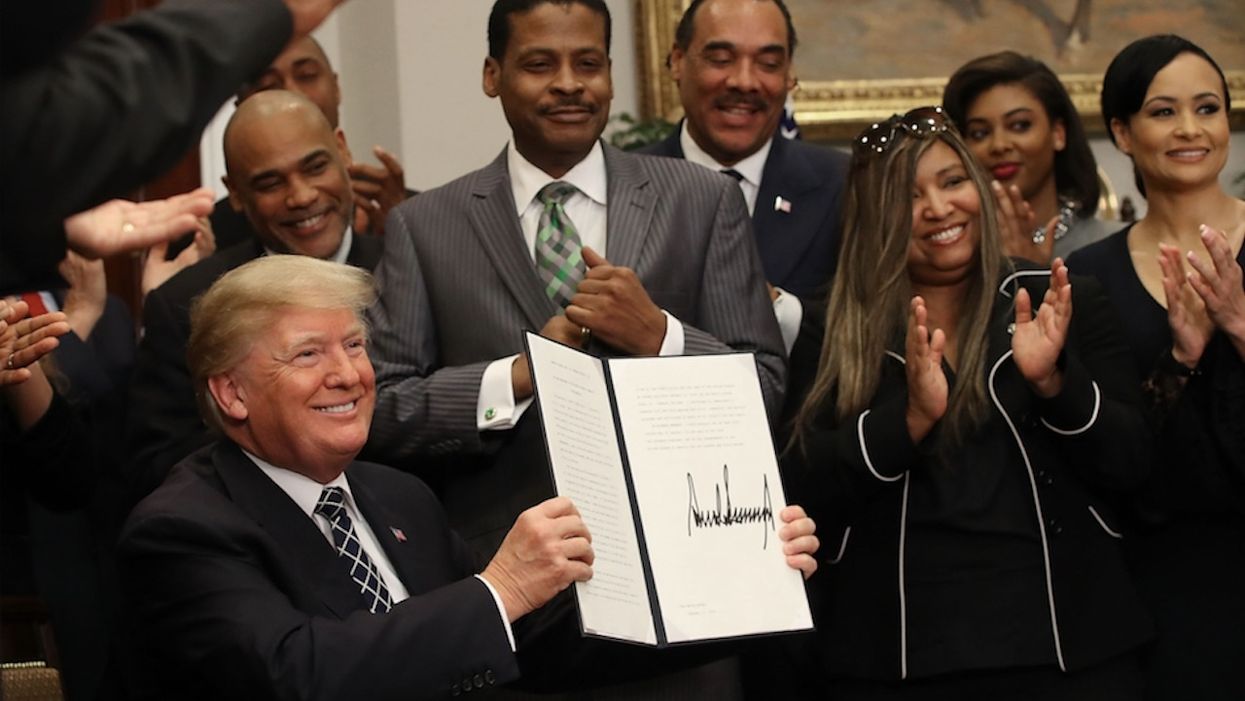
Photo by Mark Wilson/Getty Images

Study was conducted by two University of Pennsylvania researchers
Defying the popular leftist notion that racism has heightened under President Donald Trump, a pair of University of Pennsylvania researchers just published a study concluding that racism among white Americans actually declined following Trump's 2016 election.
"We find that via most measures, white Americans' expressed anti-black and anti-Hispanic prejudice declined after the 2016 campaign and election, and we can rule out even small increases in the expression of prejudice," according to the abstract of the study titled, "The Rise of Trump, the Fall of Prejudice? Tracking White Americans' Racial Attitudes 2008-2018 via a Panel Survey."
The study was conducted by University of Pennsylvania political science professor Daniel J. Hopkins and Penn B.A. candidate Samantha Washington.
"In his campaign and first few years in office, Donald Trump consistently defied contemporary norms by using explicit, negative rhetoric targeting ethnic/racial minorities. Did this rhetoric lead white Americans to express more prejudiced views of African Americans or Hispanics, whether through the normalization of prejudice or other mechanisms?" the authors asked in the abstract. "We assess that question using a 13-wave panel conducted with a population-based sample of Americans between 2008 and 2018."
The authors do not appear to be biased in favor of Trump. Indeed they explicitly categorize elements of his language before and after the election as racist — but in ways that don't consistently tell the whole story.
They stated that Trump "termed immigrants from Mexico 'rapists,' and he later called for a ban on Muslim immigration, and initially declined to renounce a former Ku Klux Klan leader. As president, he said that there were 'very fine people on both sides' of a violent confrontation between white supremacists and protestors in Charlottesville, Virginia."
The other side of the coin? Immediately following Trump's "rapists" statement — worded by the study authors in such a way that could be taken as "all Mexican immigrants" — he said he assumed others coming across the border are "good people." And the often-deployed "very fine people" claim — insisting Trump was speaking of neo-Nazis in Charlottesville — has been debunked. In fact, the Los Angeles Times' transcript indicates Trump said at the time, "I'm not talking about the neo-Nazis and the white nationalists, because they should be condemned totally." Even CNN's Jake Tapper acknowledged it.
The study's authors said they were able to "identify separate shifts in prejudice associated with Trump's emergence as a political figure in 2015 and 2016, his late-2016 general election victory, and the initial years of his presidency" and that it was anticipated that "expressed prejudice may have increased in this period, especially among Republicans or Trump supporters. But our findings indicate the opposite, a result more consistent with theories of thermostatic response in which the public moves away from the direction of current policymaking."
More from the study:
To be sure, changes in expressed prejudice in this period might be the product of factors other than Trump: the decade in question saw events including the election of the first Black president and rising attention to police-involved shootings. It is also possible that Trump's rhetoric clarified anti-racist norms, a valuable question for future study. But given that the declines in prejudice appear concentrated in the period after Trump's election, it seems quite plausible that it was not simply Trump's rhetoric but also his accession to the presidency that pushed public opinion in the opposite direction.